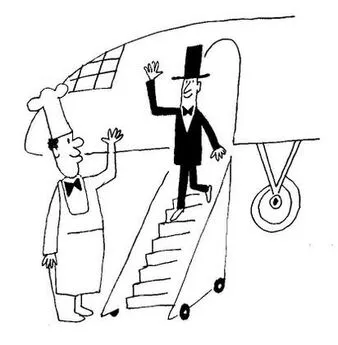ALEXANDER KENT - TO GLORY WE STEER
- Название:TO GLORY WE STEER
- Автор:
- Жанр:
- Издательство:неизвестно
- Год:неизвестен
- ISBN:нет данных
- Рейтинг:
- Избранное:Добавить в избранное
-
Отзывы:
-
Ваша оценка:
ALEXANDER KENT - TO GLORY WE STEER краткое содержание
Portsmouth, 1782. His Britannic Majesty's frigate, Phalarope, is ordered to assist the hard-pressed squadrons in the Caribbean. Aboard is her new commander-Richard Bolitho. To all appearances the Phalarope is everything a young captain could wish for, but beneath the surface she is a deeply unhappy ship-her wardroom torn by petty greed and ambition, her deckhands suspected of cowardice under fire and driven to near-mutiny by senseless ill-treatment.
TO GLORY WE STEER - читать онлайн бесплатно полную версию (весь текст целиком)
Интервал:
Закладка:
`I would not expect you to, sir.' Bolitho's eyes were hard grey, like the sea beyond the harbour.
`I know. That is why I held the command for you.' There was a murmur of voices beyond the door and Bolitho knew the audience was nearly over. The admiral added, `I have a nephew aboard the Phalarope, he is one of your young gentlemen. His name is Charles Farquhar, and he might yet make a good officer. But do him no favours for my sake, Bolitho.' He sighed and handed over the envelope. `The ship is ready to sail, so take advantage of this southerly wind.' He held Bolitho's hand and studied his face intently. `We may not meet again, Bolitho, for I fear my days are numbered.' He waved down the other man's protest. `I have a responsibility, and I have certain rewards for my duty. But youth I cannot have.'
Bolithod hitched up his sword and tucked his hat under his arm once more. `Then I will take my leave, sir.' There was nothing more he could say.
Almost blindly he walked through the door and past the little group of whispering officers awaiting their admiral's pleasure.
One officer stood apart, a captain of about his own age. There the similarity ended. He had pale, protruding eyes and a small, petulant mouth. He was tapping his fingers on his sword and staring at the door, and Bolitho guessed him to be the man who had been taken from the Phalarope. But he seemed unworried, merely irritated. He probably had influence at Court, or in Parliament, Bolitho thought grimly. Even so, he would need more than that to face Sir Henry.
As he crossed to the stairway the other captain met his stare. The pale eyes were empty of expression yet vaguely hostile. Then he looked away, and Bolitho reached the foot of the stairs where a marine orderly waited with his cloak.
Outside the inn the wind howled in his face and the rain dashed across his skin like ice rime. But as he walked slowly towards the Sally Port he noticed neither.
When he reached the Hard, Bolitho noticed that the highwater garland of slime and weed was all but covered by the angry, hissing wavelets, and he knew that the tide was nearing the flood. With luck he could get his new ship under way on the ebb. Nothing made a ship's company settle down to a fresh master more quickly than routine and work.
As he left the shelter of the last line of buildings he caught sight of the boat which waited to carry him away from the land. The oars were tossed, and swayed like twin lines of bare trees as the small craft rocked uneasily in the swell, and he guessed that each man in the boat was watching his slow approach. At the top of the stone ramp, his thick body framed against the cruising wavelets, was the familiar shape ai Stockdale, his personal coxswain. Aboard the Phalarope there would be one, friend at least, he thought grimly.
Stockdale had followed him from ship to ship. More like a trusting dog than a man. Bolitho often found time to wonder at the bond which had held them together, a link which was beyond explanation in words.
As a young and very junior lieutenant Bolitho had been sent ashore with a recruiting party during the uneasy peace, when he had considered himself more than fortunate to be spared the indignity of so many of his fellows, that of being beached and unwanted on half-pay. Volunteers had been few, but when about to return to his ship to face the wrath of his captain Bolitho had seen Stockdale standing miserably outside a local inn. Stripped to the waist he had made a truly imposing figure, his thickset body a mass of muscle and power. A loud-mouthed barker at his side had called to the small naval recruiting party that Stockdale was a prize-fighter of great repute, and that a golden guinea would be immediately awarded to any one of Bolitho's men who could lay him low. Bolitho had-been weary, and the thought of a cool drink at the inn while his men tried their luck overcame his normal objections to. what he thought to be a degrading spectacle.
As it happened, he had had in his party a gunner's mate who was not only a very proficient fist-fighter but a man quite used to maintaining discipline by that and any other means which came his way. He had thrown aside his jacket, and encouraged by the other sailors had gone to the attack.
Exactly what had happened next Bolitho was not quite sure. It was said that one of the sailors had managed to trip Stockdale, and that seemed likely, as Bolitho had never seen him beaten since that day, but the next instant, even as Bolitho had been reaching for his ale, there had been a scream of rage from the barker and a great bellow of laughter from the sailors.
Bolitho had found the gunner's mate pocketing his guinea while the infuriated barker had proceeded to beat Stockdale with a length of chain, interspersed 'with threats and curses.
It was then that Bolitho had discovered that Stockdale accepted loyalty like a manacle. He never flinched from the unjust beating, although he could have killed his tormentor with one blow.
Pity or disgust drove Bolitho to stop the beating, and the look of dumb gratitude on Stockdale's battered face only helped to make things worse. Watched by the grinning sailors and the flint-eyed barker he had asked Stockdale to volunteer for the King's service. The barker had raised a storm of pro= test at the thought of his living being removed for all time.
Stockdale had given a brief nod and. picked up his shirt without a word. Even now he hardly ever spoke, his vocal cords having been damaged over the years of fighting in one town after another.
Bolitho had imagined that his angry gesture had ended the matter. But it was not so. Stockdale had settled down aboard ship in a manner born. For all his strength he was gentle and patient, and only one real object seemed to alter his placid way of life. Wherever Bolitho went, so did he.
At first Bolitho decided to ignore this fact, but when at length he had his own command and required a personal coxswain, Stockdale just seemed to be there, ready. As he was now.
He was staring emptily at the sea, his body motionless in the wind, his wide white trousers and blue jacket flapping around his limbs like pennants on a heavy ship of the line. He turned at Bolitho's approach and knuckled his forehead, his deep brown eyes watching his captain with silent concern.
Bolitho gave a tight smile. `Is everything ready, Stockdale?'
The man nodded slowly. `I've stowed your boxes in the boat, sir.' He glared at the waiting boat's crew. `I've had a word with this lot about how things should be done from now on!'
Bolitho stepped down into the boat and gathered his cloak tightly around him. Stockdale grunted an order and the boat idled clear of the stonework.
`Out oars! Give way together!' Stockdale swung the tiller and squinted between the oarsmen as the boat turned and bit into the first angry swell.
Bolitho watched the oarsmen through narrowed eyes. Each man was careful to avoid his scrutiny. The new captain, any captain, was second only to God. He could promote and flog, reward and hang any man aboard, and when a ship was out of company, alone on the high seas, the powers were exercised according to a particular captain's temperament, as Bolitho well knew.
As the boat pushed into open water he forgot the straining seamen and concentrated his full attention on the distant frigate. Now that he was closer he could see the steady pitch and roll of the graceful hull as she strained at the taut cable in the freshening wind. He could even see the flash of bright copper as she showed her bilges, and then as she canted to the opposite side he could make out the busy activity on the maindeck below her tall, tapering masts and furled sails. Aft by the entry port there was a neat scarlet rectangle of marines. already drawn up to greet him, and momentarily in the wind he caught the sound of twittering pipes and the hoarse bellow of orders.
She was a fine ship, he thought. One hundred and forty feet of power and living grace. From the high gilt figurehead, a strange bird mounted on the back of a dolphin, to her carved poop with the rippling ensign above she was the proof of a shipbuilder's art.
Now he could see the group of officers waiting on the quarterdeck, more than one with his glass raised and trained on the tossing boat. He set his face in an impassive mask, forcibly dampening down the excitement and the sense of challenge which the ship had given him.
`Boat ahoy!' The hail was caught by the wind and tossed to the screaming gulls above.
Stockdale cupped his hands and yelled, `Phalarope!' There was no doubt now for the waiting officers. No doubt at all that their new overlord was approaching.
Bolitho opened his cloak and threw it back across his shoulders, the feeble light glinting on his gold lace and the hilt of his sword. Still the frigate grew bigger and bigger, until at last she towered above the boat, blotting out all else.
As the oarsmen manoeuvred towards the entry port Bolitho ran his eye slowly along the masts and yards and the taut black rigging. There was no sign of slackness, everything was as it should be. The hull was well painted, and the amount of gold leaf around the figurehead as well as the broadwindowed stern was proof that her last captain had spent a good deal of his own money to make her so.
The thought of money well spent made him glance briefly at his boxes in the sternsheets. He had brought over a thousand pounds of prize money back from the Indies, yet apart from the new uniforms and a few small luxuries he had little to show for it. And now he was off to sea again, where a mutineer's knife might end his life as quickly as a French cannon ball, unless he was constantly vigilant. He suddenly recalled the admiral's warning, `If you fail, even I cannot help you!'
The boat lurched alongside and almost threw him from his feet as he jumped clear of the gunwale and began to climb up the spray-dashed side.
He tried to shut his ears to the crash of sound which greeted him. The trilling pipes from the side party, and the slap of muskets as the marines presented arms; it was too easy and too dangerous to let his guard slip even for an instant. Even to allow himself to enjoy this moment to the full, for which he had been waiting for so long.
A tall, heavily built lieutenant stepped forward and removed his -hat. `Lieutenant Vibart, sir. I am the senior here.' He had a thick, rasping tone, and his face was unsmiling.
`Thank you, Mr. Vibart,' Bolitho stared past him along the full length of his ship. The gangways on either side of the hull which connected the forecastle with the quarterdeck were crowded with silent men, and others had climbed into, the shrouds so that they could see their captain better. His eye moved on, across the neat lines of guns, firmly lashed behind closed ports, the spotless decks and well-flaked lines. Lieutenant Vibart was a good first lieutenant as far as smartness and outward appearance was concerned, he thought.
Vibart was saying gruffly, `Mr. Okes and Mr. Herrick, the second and third lieutenants, sir.'
Bolitho nodded, keeping his expression noncommittal. He had a quick impression of two young officers, nothing more. Later the men would emerge from behind the strange faces. Right now it was more important that his own impression on them was made quite clear.
`Have the hands lay aft, Mr. Vibart.' He drew his commission from inside his coat and unrolled it as the men were urged towards him. They looked healthy enough, but their bodies were clad in rags, and some of them seemed to be dressed in the remains of what they had been wearing when pressed into service. He bit his lip. That would have to be changed, and at once. Uniformity was all important. It killed envy amongst the men, if only for poor remnants of clothing.
Читать дальшеИнтервал:
Закладка:








